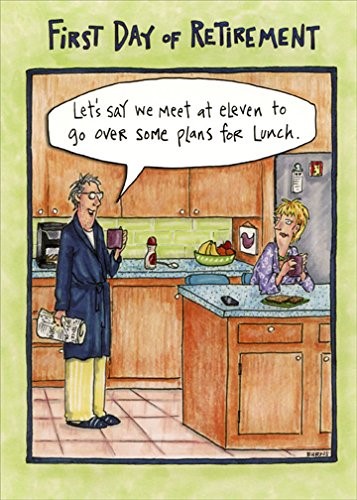“Just as Free, Free as We’ll Ever Be”
-Zac Brown Band
A study done by Lee and Coughlin from the MIT AgeLab looked at people’s perspectives toward retirement based on different factors like sex, age, and demographics.1 They asked 921 people to associate a word with retirement and one of the top ten words used was `freedom’. For many, retirement represents a sense of freedom – no longer a schedule to abide by, or meetings to attend. If you haven’t listened to Zac Brown’s song, “Free”, you should because it captures the essence of freedom. I might be biased to the song as my wife and I played it during our first dance at our wedding; however, I can still envision someone blaring Zac Brown’s, “Free” on the first day of retirement. As good as that possibility of freedom may sound, the transition into retirement might not be as simple as playing “Free” as you sail off into the sunset. Take a second to think about it. Your life has revolved around working for the last few decades. You are now about to suddenly change the way of life you have known for so long and need to consider some factors. When I say, “consider some factors,” the first thought most people will have is that I am talking about finances, social security, and insurance. While all of those must be considered, today we are focusing on something a little different.
Will I have enough to do in retirement? Many studies show that staying busy during retirement can help aid in longevity and quality of life. Staying busy can entail taking on a part-time job that you have always wanted to do for fun, volunteering in the community, or doing anything else that you enjoy and find meaningful. One of the biggest struggles for retired individuals is finding a way to replace the intellectual stimulation that came from work. Unfortunately, the adage of “use it or lose it” applies here regarding the brain. Ideally, you can find that sweet spot where your strengths and passions overlap with areas of need in your community, and you find yourself just as intellectually stimulated as you were in a career.
Am I ready to call it quits? If you are still working and find joy in it, it might not be time to retire. If you are at a point where you are just going through the motions and have lost that spark you once had for work, this might be a sign that it’s time to retire. A career will always ebb, and flow so don’t mistake a time where things are difficult at work as the determining factor in your decision to retire. One of the hardest parts of retirement for individuals is finding life purpose or identity. You can no longer be Jane the attorney. You are now Jane the retired gal. You have spent 40-some years with your occupation being a central part of your identity. Retirement can be a monumental time for personal growth and self-reflection. In retirement, many people find purpose in things greater than themselves.
Have I considered those around me? Does your significant other want you around 24/7? This seems like a funny question but it’s important to consider. The last few decades of your relationship or the entirety of your relationship has likely been structured in a way that makes work a major part of your day. It is important to bring your spouse into the conversation about retirement. Talk to them about how things might change for each of you. Will you retire at the same time, what are the items on your bucket list, what are things you are going to start doing and things you are going to stop doing? These are all questions you need to talk about. After you both are on the same page, implement a semi-retirement strategy. Maybe start by going part-time and then bringing in the activities you want to do in retirement. Take small steps to get a taste of what it is going to be like and then make the bigger decisions.
There is more than enough information about how to financially maneuver through retirement but sadly not enough on some of the psychological, and relational factors. Unfortunately, some people become depressed and dissatisfied early in retirement because they did not properly consider what retirement might entail for themselves, their time, and those around them.
As you start to consider retirement or know those who might, don’t hesitate to reach out as I can provide a more structured bank of questions to consider personally and with loved ones. The goal is to be prepared in all aspects of life for what retirement might look like so that on the first day of retirement you can play “Free” as you sail off into the sunset.

1Lee, Chaiwoo, and Joseph Coughlin. 2018. “Describing Life After Career: Demographic Differences in the Language and Imagery of Retirement.” Journal of Financial Planning 31
(8): 36–47 .063021CST063022.
